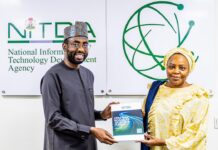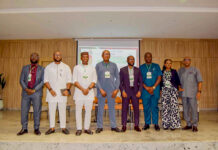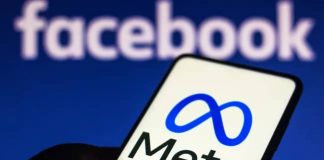AI, Deepfakes and the Ballot: How Technology Could Shape Nigeria’s 2027 Elections
By Sulyman Pakoyi,
Politics is about perception. In Nigeria, where election periods are marred by distrust, deception, rumours, and scandals, new artificial intelligence tools are giving politicians opportunities to shape voters’ perceptions and influence demographics online.
Over the years, the use of the internet for political campaigns has become a tradition in Nigeria. But the rise of deepfakes and AI-generated content is reshaping that landscape, fueling misinformation, disinformation, and hate speech at an alarming rate.
Nigeria has over 140 million internet users, with an estimated 38.7 million active social media users. Facebook has the largest user base, followed closely by TikTok. Other platforms include YouTube (27 million), Snapchat (19.6 million), and LinkedIn (11 million). These platforms have become a goldmine for politically malicious content targeted at ethnic or religious identities for political gain.
The AI footprint is everywhere on the internet, from voice-cloned political speeches and deepfakes to the circulation of data-driven propaganda in WhatsApp groups and discussions on X and Facebook by campaign media units and online influencers. The tactics remain the same, but only the tools are becoming sharper.
As the 2027 election draws closer, researchers and fact-checkers are observing patterns of AI-generated disinformation. A report published by DUBAWA earlier this year noted the proliferation of deepfake technology on social media platforms, including X, TikTok, and Facebook.
During the 2023 election, the presidential opposition candidate, Atiku, and Okowa’s voices were purportedly cloned and circulated. Additionally, a 2023 research paper noted the widespread use of deepfakes in the 2023 presidential election. Similarly, the Labour Party presidential candidate, Peter Obi, and Bishop David Oyedepo’s leaked audio, circulated online, stated that the 2023 election was a “religious war”. However, Peter Obi maintained that the audio was doctored.
Of course, misinformation is not a new phenomenon in Nigerian politics. Long before the emergence of AI and deepfakes, digital manipulation had already left its mark.
In 2015, Cambridge Analytica was accused of improperly using data from about 50 million Facebook users on behalf of a wealthy Nigerian client to sway the 2015 presidential election and damage the reputation of then-opposition candidate Muhammadu Buhari.
Now, with AI tools becoming more sophisticated, deepfakes are harder to detect, and fact-checkers face growing challenges in verifying what is real.
Recently, OpenAI launched SORA, a video generation model which, according to the company, “is more physically accurate, realistic, and more controllable than prior systems.”
The AI video-generating tool has flooded the internet with humorous deepfake videos of prominent figures worldwide, particularly Muhammad Ali and Abraham Lincoln. A wave experts warn would make reality more acute than ever before.
Also, in an article, the former deputy director of digital innovation at the CIA, Jennifer Ewbank, noted that spotting Deepfakes by eye is becoming nearly impossible, given the rapid advances in text-to-image, text-to-video, and audio cloning capabilities.”
As the concern grows, Nigeria has shown a level of preparedness to tackle the impending negative impact, and the Nigerian electoral commission has established an AI unit. The division will help harness logistical planning, material distribution, and polling unit allocation through geo-spatial intelligence while enhancing the integrity and efficiency of elections in the country.
However, an expert noted that Nigeria needs more than division; it must also invest in training electoral officials, cybersecurity experts, and fact-checkers.
On the positive side, AI can also have a beneficial impact on Nigeria’s democracy and elections, such as combating voter suppression, increasing voter participation, and promoting accountability and transparency in governance. One of the initiatives is BudgIT Bimi, which simplifies and expands access to public finance.
As technology evolves, so too does the battle for truth and the sustainability of Nigeria’s democracy. The future of the nation’s democracy remains fragile, especially in the wake of the recent failed coup attempt.
Nigeria must protect its democratic interests from emerging threats, such as AI-driven disinformation, as seen during the buildup to the recent presidential election in Côte d’Ivoire. The country should begin preparing now, as there is still time to act wisely before 2027 becomes a reality.
Sulyman Pakoyi is a PRNigeria fellow. He wrote in via: [email protected].
















